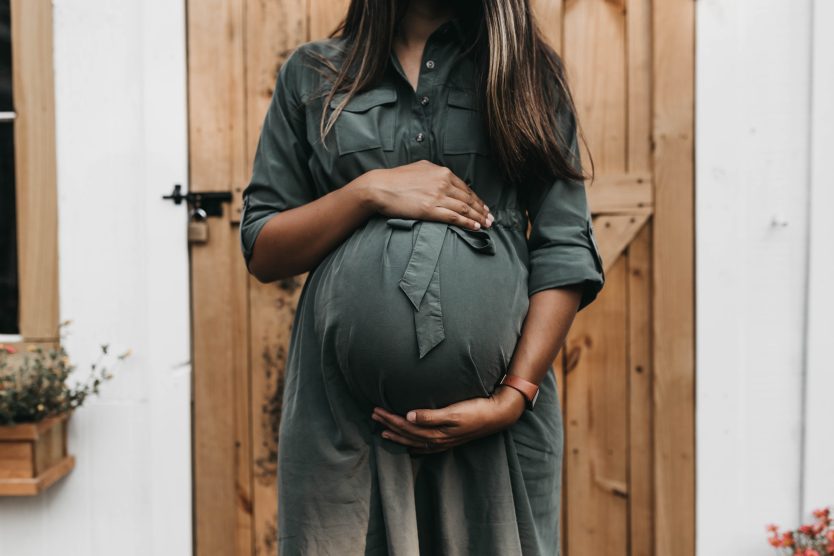Endometriosis can cause pain, bleeding and other issues like fatigue, diarrhea, constipation, bloating or nausea.1
It can lead to issues with your menstrual periods, including occasional heavy menstrual periods or bleeding between periods.1
And one of the most common questions is can you get pregnant with endometriosis?
The answer depends, and can be yes or no depending on circumstances. Let’s look more closely at endometriosis, its side effects, and whether you can get pregnant.
What is Endometriosis?
Endometriosis is caused when tissue similar to that which normally lines the inside of your uterus—the endometrium—grows outside your uterus. It most commonly affects your ovaries, fallopian tubes and the tissue lining your pelvis, and in rare instances the tissue grows beyond the area where pelvic organs are located.1
This tissue also acts like endometrial tissue in that it thickens, breaks down and bleeds with each menstrual cycle. Since the tissue can’t exit your body, it becomes trapped and surrounding tissue can become irritated. Endometriosis can also cause scar tissue and adhesions to develop, and these bands of fibrous tissue can cause pelvic tissues and organs to stick to each other.1
While it can cause fertility problems, the common misconception that endometriosis and infertility go hand-in-hand is not true, and can cause unnecessary stress.2
As for its prevalence, an estimated 1 in 10 reproductive-age women—or approximately 200 million women worldwide—may be suffering from endometriosis.3
What are the Symptoms of Endometriosis?
Pelvic pain particularly associated with menstrual periods is the main symptom, with some women reporting that their menstrual pain is far worse than usual, or increasing over time.1
Besides painful periods, other symptoms of endometriosis include:1
- Pain during or after sex.
- Pain with bowel movements or urination.
- Heavy bleeding during or between your periods.
- Fatigue, diarrhea, constipation, bloating or nausea, especially during menstrual periods.
As well, those seeking treatment for infertility often discover they have endometriosis.1
Finally, endometriosis is sometimes mistaken for other conditions that can cause pelvic pain, such as pelvic inflammatory disease; or it may be confused with abdominal conditions like irritable bowel syndrome.1 In women undergoing abdominal surgery for chronic pelvic pain or infertility, endometriosis represents one of the most common pelvic pathologies.3
Can you get Pregnant with Endometriosis?
Yes! Those with endometriosis should not lose hope about having a baby. While the growths can cause issues like blocking your fallopian tubes, or forming scar tissue that makes it harder to get pregnant, that doesn’t mean you are infertile.2
Doctors also reassure women who have been diagnosed with endometriosis that they don’t have to immediately seek a fertility specialist. It’s OK to try and get pregnant on your own.2
It’s also true that endometriosis may impact your fertility. There are a number of ways it can prevent a pregnancy, as the abnormal tissue may block the ovary from releasing eggs, block the fallopian tubes, prevent the proper functioning of the fallopian tubes, or prevent a fertilized egg from attaching to the uterus.4
Endometriosis may make it difficult to get pregnant—with some estimates stating that about one-third of women with endometriosis have trouble—but most women with endometriosis are still able to have children.4
Doctors encourage women not to panic about endometriosis, since there are many treatments available to help women with endometriosis and those having trouble getting pregnant.2
See A Doctor
If you have period pain that affects your usual activities, or you have other symptoms that lead you to suspect you have endometriosis, seek medical attention.4 The same is true if you’re having trouble getting pregnant.
Use our Physician Finder to find a doctor near you with expertise in women’s health, who can help determine if you have endometriosis, as well as help with treatment options and discuss getting pregnant.




















